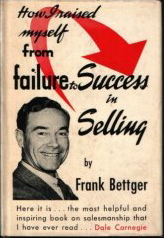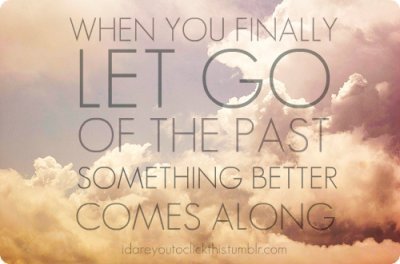![]()

I’ve read a great deal of books on the topics of failure and success. I’ve come across many examples of mishaps transformed into triumphs. There are countless examples, really. Yet, textbooks can’t teach you the sort of lesson that real, concrete failure can.
![]()

When you fail, you hit rock bottom. You need this humbling moment to realize, “Well maybe I’m not the sh*t. Perhaps I was too cocky. Surely, hubris was my character flaw.” As you may recall, pride is one of the seven deadly sins – right up there with envy, lust, anger, gluttony, sloth and greed.
Perhaps this was the trouble with Blockbuster Video. They thought they owned full market share of the video rental industry, so who cares what the so-called “competition” is doing, right? They’re just little guys. So what if they’re waiving late fees? So what if they’re spending money to mail DVDs to customers directly? What a ludicrous idea! So what if these small fish are lowering their prices. They’ll be gone soon enough. Now, in many markets, Blockbusters have been replaced by Netflix, Red Box and Family Video. These silent-but-deadly assassins snuck in and provided consumers with a better product that reflected the times and the gloating video rental giant is out of business.
 Who are you? Do you really know yourself? When you fail, you’re confronted with a wide range of emotions. You may feel miserable, depressed and low. Then you may pick yourself up, dust yourself off and say, “That wasn’t so bad. Bring it on.” Are you a quitter or are you determined? Were you pursuing the wrong path? Were you stubbornly cutting off your nose to spite your face? Did you refuse help when it was offered to you, even though you needed it? Were you blind and deaf to opportunity when it arrived at your doorstep? Tavis Smiley discusses his existential crisis and introspection in his best-selling book, Fail Up: 20 Lessons on Building Success from Failure. Instead, failure becomes an opportunity to “know thyself” just a little bit better.
Who are you? Do you really know yourself? When you fail, you’re confronted with a wide range of emotions. You may feel miserable, depressed and low. Then you may pick yourself up, dust yourself off and say, “That wasn’t so bad. Bring it on.” Are you a quitter or are you determined? Were you pursuing the wrong path? Were you stubbornly cutting off your nose to spite your face? Did you refuse help when it was offered to you, even though you needed it? Were you blind and deaf to opportunity when it arrived at your doorstep? Tavis Smiley discusses his existential crisis and introspection in his best-selling book, Fail Up: 20 Lessons on Building Success from Failure. Instead, failure becomes an opportunity to “know thyself” just a little bit better.

It’s important to remember that failure is not final unless we give up.
Following failure, we must accept that things must change in some way. We must contemplate the reasons – within our control – that things went wrong, but not be overly hard on ourselves. We must understand how we can adjust our mentality, our habits and our lives to avoid repeating the same mistakes again. We must look ahead to a refreshing new direction and learn to let go of the past.

